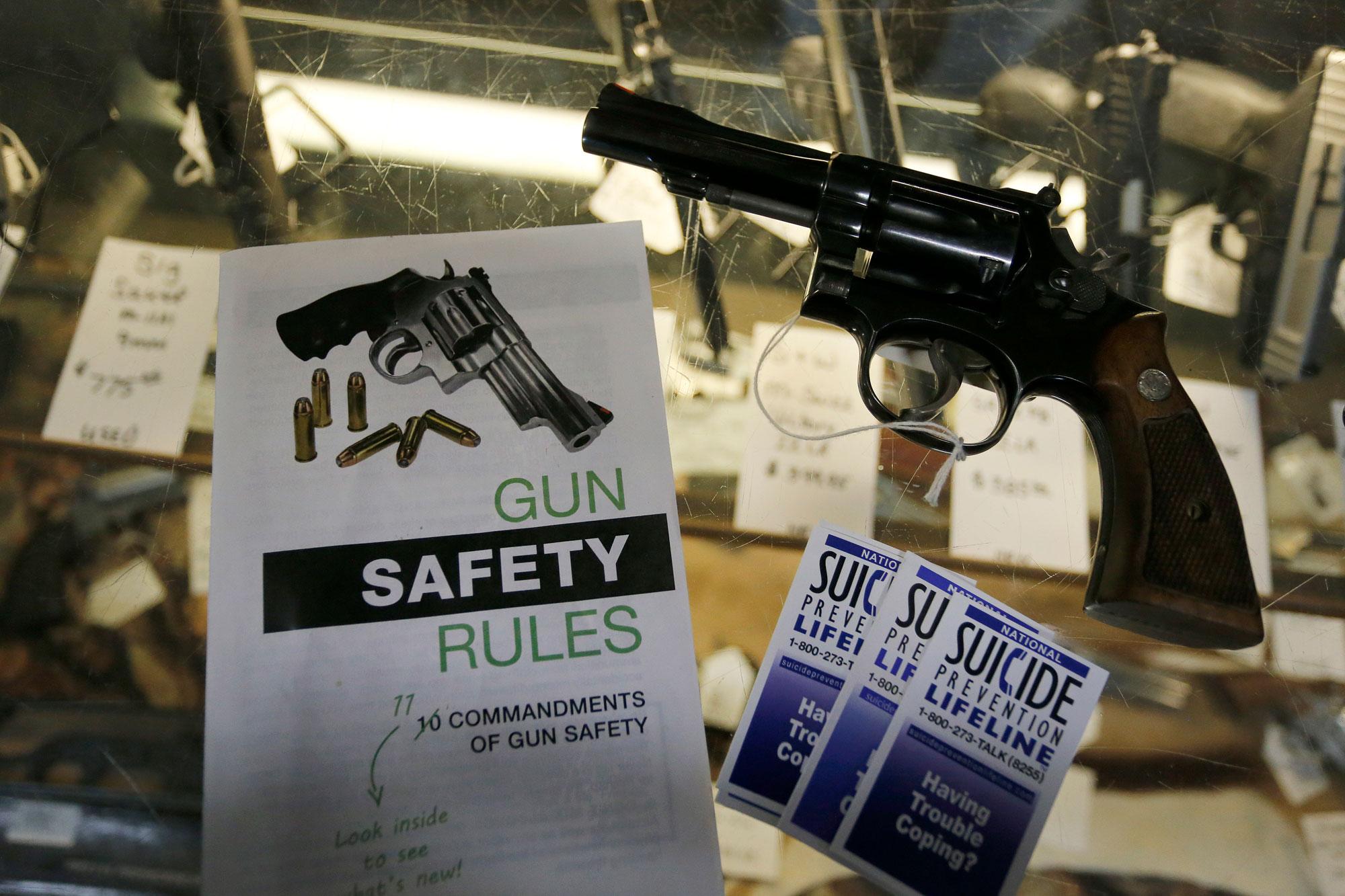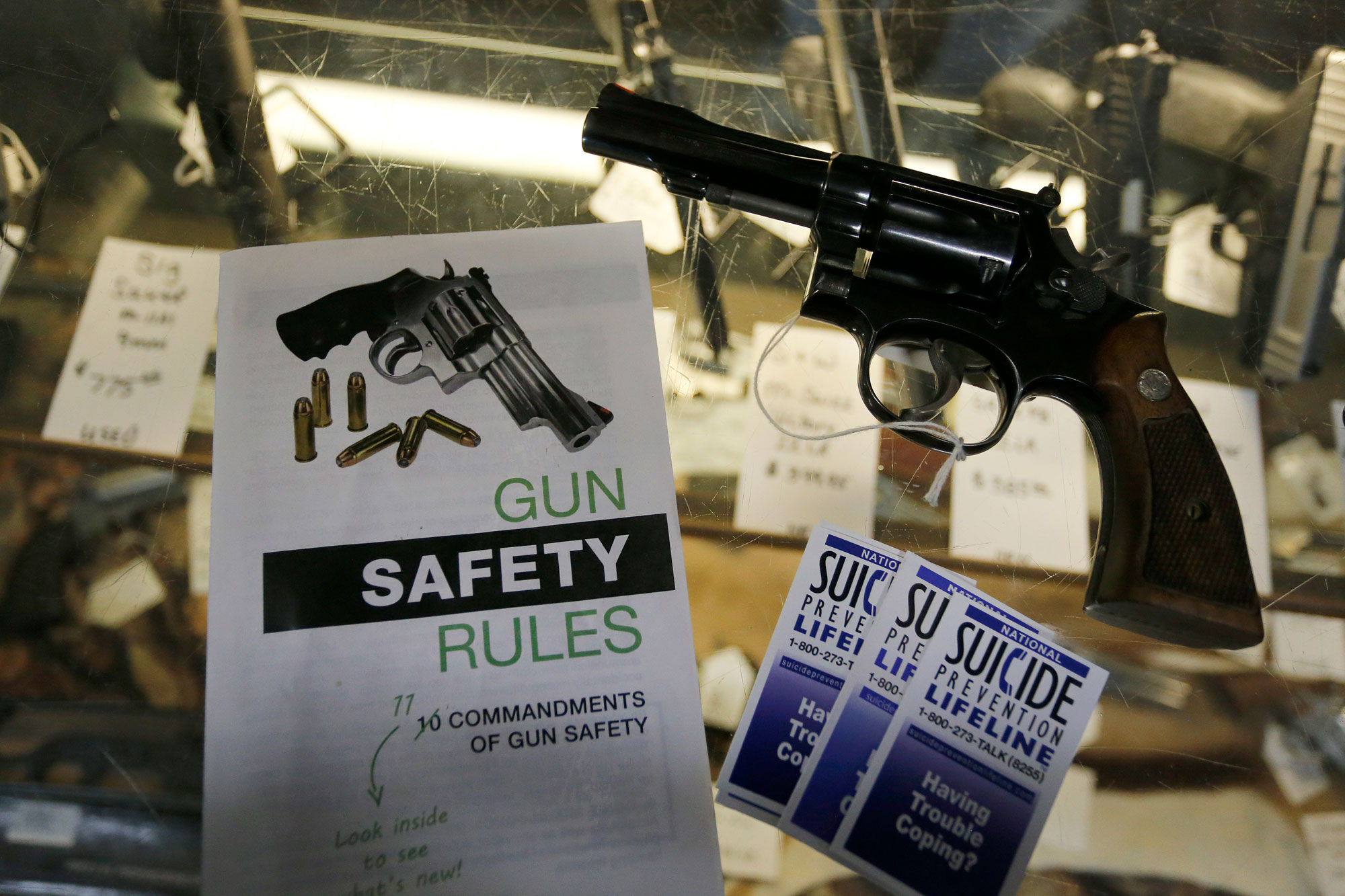

Published 12:55 p.m. | Updated 4:35 p.m.
The Democrat-controlled Colorado Legislature sent a "red flag" bill Monday to the governor that calls for taking firearms from people who could pose a threat to themselves or others.
Gov. Jared Polis, also a Democrat, has pledged to sign the measure that would place the state among 13 others that have passed such legislation. Florida passed its law after the 2018 Parkland school massacre.
The controversial bill would allow family, household members or law enforcement to petition a court to have guns seized or surrendered. A subsequent court hearing could extend a gun seizure up to 364 days.
The bill places the burden of proof on the gun owner to get the firearms back by showing that he or she no longer poses a risk.
Republicans repeatedly sought to shift that burden of proof to those seeking the protective order. They argued the legislation offers no due process to gun owners. Republicans also say it violates constitutional rights and could lead to violent confrontations if a judge orders police to confiscate firearms from a resistant owner.
One of the bills strongest opponents, Republican Weld County Sheriff Steve Reams, said he’ll even risk a contempt of court citation rather than enforcing a judge’s order to confiscate guns.
Reams argues the measure is unconstitutional and predicts a spate of lawsuits to challenge the law if Polis signs it.
“I’d much rather be held in contempt of court than violate someone’s constitutional rights and that action could result in me being sentenced to my own jail," Reams said.
The Weld County sheriff talked to CNN about the bill:
Among the sheriffs supporting the measure is Democrat Joe Pelle of Boulder, who said the law could save lives.
“I see it being used rarely but in extreme situations,” he said. “We have people periodically who pose a tremendous risk to themselves or others … who are obviously in a crisis and whose behavior is deteriorating. This bill could be useful in those circumstances to prevent harm to themselves or their neighbors or family members.”
Republicans defeated similar legislation last year, when they controlled the state Senate. But Democrats swept both legislative chambers and retained the governorship in November's elections.
The state House voted 38-25 Monday to approve Senate amendments to the bill.
"This bill will give law enforcement and families the tools that they need to stop tragedies from constantly happening and save lives," said first-term Rep. Tom Sullivan, who sponsored the bill with House Majority Leader Alec Garnett.
Sullivan's son, Alex, was killed on his 27th birthday in the 2012 mass shooting at an Aurora theater.
Several law enforcement officials testified for the bill, named after Zackari Parrish, a 29-year old sheriff's deputy in Douglas County. The husband and father was shot and killed in a New Year's Eve 2017 shooting by a man who had exhibited increasingly erratic behavior.
Opponents say about half of the counties in the state have passed resolutions opposing the bill, symbolically declaring their counties "Second Amendment sanctuaries."
Some of the mostly rural counties said they will back sheriffs who do not enforce the measure and will not spend any money to store confiscated guns.
State Attorney General Phil Weiser, a Democrat, has said sheriffs who don't want to enforce the measure should resign. Polis, however, said on March 26 that he believes sheriffs are committed to enforcing laws approved at the Capitol. Polis also said sheriffs have discretion to decide which issues to focus on.
It's the first major gun legislation to make its way through both Colorado legislative chambers since 2013, when lawmakers passed universal background checks and banned large-capacity ammunition magazines after 2012 mass shootings in an Aurora, Colorado theater and at Sandy Hook Elementary School in Connecticut.
Voters subsequently recalled two Democratic lawmakers for supporting the measures. A third resigned rather than face a recall.







